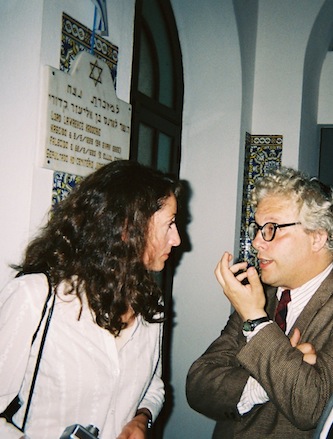Content
Funds for Research in Jewish Studies
Sources on this page are primarily for senior scholars (i.e., those who hold a Ph.D.), though some are also available to advanced graduate students. Additional sources will be added periodically.
Graduate students may find resources on this page helpful for future planning. Also see Graduate Funding. Undergraduates planning to conduct research are encouraged to speak with the Jewish Studies program advisor to discuss options.
Detailed Indexes of Fellowships and Grants
- From Yeshiva University: Funding for Jewish Studies
- From University of Pennsylvania: Funding Sources for Judaic Studies
Visiting Fellowships and Grants
Center for Jewish History
New York City - Numerous visiting fellowships for doctoral students and senior scholars. Full-year, semester, and short-term visiting fellowships available. Most require residency at the Center.
Center for Holocaust Studies
Washington, D.C. - Numerous grants and fellowships for research on the Holocaust and related topics. Fellowships-in-residence for Ph.D. candidates working on their dissertations (ABD), postdoctoral researchers, and senior scholars. Scholars early in their careers are especially encouraged to apply. Applicants must be affiliated with an academic and/or research institution when applying for a fellowship. Visiting fellowships are for a minimum of three months and a maximum of nine.
Rubenstein Rare Book & Manuscript Library, Duke University
Durham, NC - Awards of up to $1500 per week, plus airfare, to support scholars, students, and independent researchers whose work would benefit from access to the Judaica materials held by the Rubenstein Library, the Duke Divinity School Library, and/or Perkins Library. Research topics must be strongly supported by Duke University's Judaica collections. Any faculty member, graduate or undergraduate student, or independent scholar is eligible to apply. All applicants must reside beyond a 100-mile radius of Durham, NC.
Center for Jewish Studies, Harvard University
Cambridge, MA - Harry Star Fellows: The Harry Star Fellowship covers travel expenses and a stipend for a group of scholars from around the world to gather at Harvard to engage in full-time research in a designated subject area in Judaica. Applicants may come from any discipline in the humanities or social sciences associated with studies in Judaica; junior faculty are especially encouraged to apply. PhD required. Residence in the Boston area and participation in the Center community are required during the fellowship appointment. All Starr Fellows must be in residence during the spring semester; full-year fellowships are also available.
Frankel Center for Judaic Studies, University of Michigan
Ann Arbor, MI - Frankel Institute Fellows: Each year, the Institute develops a research theme that brings about a dozen scholars together to further their own research, interact with faculty, students and one another, and enrich the intellectual life of the community. Fellowship applications are accepted from both tenured and untenured faculty as well as from recent Ph.D.s without a tenure-track position and professors emeriti.
Katz Center for Advanced Judaic Studies, University of Pennsylvania
Philadelphia, PA - Katz Center Fellows The fellowship program invites roughly twenty scholars each year to conduct research on a specific theme within the various fields of Judaic studies. Each fellow is given an office at the Herbert D. Katz Center for Advanced Judaic Studies in downtown Philadelphia, and receives research support from the Katz Center's staff and librarians. During the course of the year the fellows work on their individual projects and meet at weekly seminars to discuss their on-going research in the company of their colleagues. Faculty at all levels are eligible, as are exceptional graduate students in the last phases of writing their dissertation. Fellowships granted may be for one semester or the full academic year.
